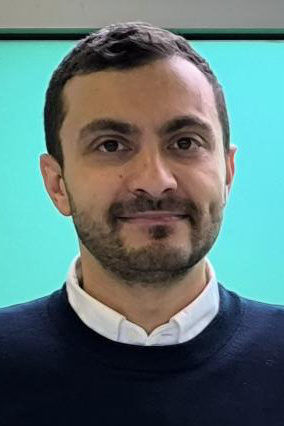 Pierre Klein is a senior post-doctoral fellow in the Repeat expansions & Myotonic Dystrophy (REDs) team led by Denis Furling. He is the recipient of a highly prestigious MSCA fellowship from the European Commission for his EpiDM project: ‘Uncovering the role of the m6A epitranscriptome in Myotonic Dystrophy Type 1 (DM1)’. Interview with Pierre Klein.
Pierre Klein is a senior post-doctoral fellow in the Repeat expansions & Myotonic Dystrophy (REDs) team led by Denis Furling. He is the recipient of a highly prestigious MSCA fellowship from the European Commission for his EpiDM project: ‘Uncovering the role of the m6A epitranscriptome in Myotonic Dystrophy Type 1 (DM1)’. Interview with Pierre Klein.
What is your background?
I did my thesis in Vincent Mouly and Capucine Trollet’s* team at the Institute’s Myology Research Centre a few years ago. I then moved to the United States, and then to London, to specialise in the study of RNA methylation, a new field of gene regulation research that was emerging at the end of the 2010s. While in London, I developed a research project between UCL and the Crick Institute, this time studying RNA methylation in human neurogenesis. I returned to the Institute’s Myology Research Centre a few months ago to apply this new knowledge and cutting-edge techniques to skeletal muscle.
Can you tell us more about your research topic?
The idea of the project is to study m6A methylation, a chemical modification of RNA. This phenomenon is essential and is involved in fundamental processes in the cell, in particular in the regulation of RNA, its maturation, stabilisation and degradation. We now know that it is involved in numerous pathologies such as cancer and neurological diseases, but there is very little research into the role of RNA methylation in muscle.
The idea is also to see its role in pathologies, in particular Steinert disease (DM1), which is interesting because, although we know that defects in RNA are responsible for DM1, no study has been carried out to find out whether m6A is involved. After re-analysing the data in the scientific literature, we have strong reason to believe that there are potentially methylation changes at RNA level. We are not saying that this is the main cause (these diseases are very complex), but that this is an aspect that needs to be deciphered. Looking at the changes in this methylation will help us to understand the disease better, and to develop more effective therapies. And it will open up a field of research into all muscle diseases.
What does the grant mean to you?
I’m very proud on a personal level because it recognises my CV experience and my research project as having potential: Europe trusts us, there’s no reason why other funders shouldn’t, which is encouraging for the future projects we’ll be proposing. I want to specialise in the study of chemical modifications of RNA in muscle and carry out projects within the Institute. What’s more, the grant covers the salary and part of the running costs of the project for two years, which means we can get the project off the ground. I’m also proud for the Institute, because being awarded this MSCA grant contributes to its reputation and recognition of its level of scientific excellence.
* Cellular and molecular orchestration in muscle regeneration, during ageing and in pathologies team
